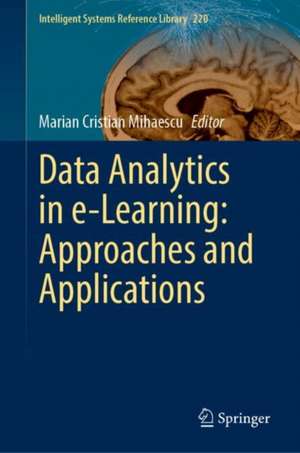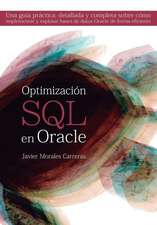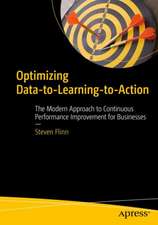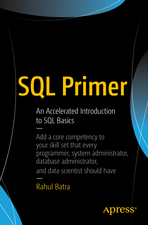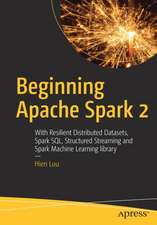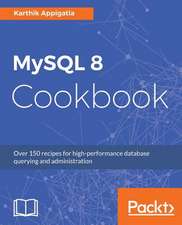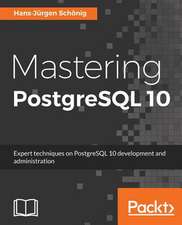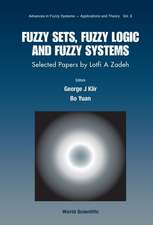Data Analytics in e-Learning: Approaches and Applications: Intelligent Systems Reference Library, cartea 220
Editat de Marian Cristian Mihăescuen Limba Engleză Hardback – 23 mar 2022
This book represents a guideline for building a data analysis workflow from scratch. Each chapter presents a step of the entire workflow, starting from an available dataset and continuing with building interpretable models, enhancing models, and tackling aspects of evaluating engagement and usability. The related work shows that many papers have focused on machine learning usage and advancement within e-learning systems. However, limited discussions have been found on presenting a detailed complete roadmap from the raw dataset up to the engagement and usability issues. Practical examples and guidelines are provided for designing and implementing new algorithms that address specific problems or functionalities. This roadmap represents a potential resource for various advances of researchers and practitioners in educational datamining and learning analytics.
| Toate formatele și edițiile | Preț | Express |
|---|---|---|
| Paperback (1) | 1037.98 lei 43-57 zile | |
| Springer International Publishing – 24 mar 2023 | 1037.98 lei 43-57 zile | |
| Hardback (1) | 1044.25 lei 43-57 zile | |
| Springer International Publishing – 23 mar 2022 | 1044.25 lei 43-57 zile |
Din seria Intelligent Systems Reference Library
- 20%
 Preț: 1050.57 lei
Preț: 1050.57 lei - 20%
 Preț: 1157.60 lei
Preț: 1157.60 lei - 20%
 Preț: 648.44 lei
Preț: 648.44 lei - 20%
 Preț: 650.08 lei
Preț: 650.08 lei - 20%
 Preț: 1005.64 lei
Preț: 1005.64 lei - 5%
 Preț: 968.88 lei
Preț: 968.88 lei - 20%
 Preț: 1052.67 lei
Preț: 1052.67 lei - 20%
 Preț: 1171.46 lei
Preț: 1171.46 lei - 20%
 Preț: 1164.84 lei
Preț: 1164.84 lei - 20%
 Preț: 815.83 lei
Preț: 815.83 lei - 20%
 Preț: 989.96 lei
Preț: 989.96 lei - 20%
 Preț: 1063.41 lei
Preț: 1063.41 lei - 20%
 Preț: 504.37 lei
Preț: 504.37 lei - 18%
 Preț: 1113.26 lei
Preț: 1113.26 lei - 20%
 Preț: 1920.04 lei
Preț: 1920.04 lei - 20%
 Preț: 990.62 lei
Preț: 990.62 lei - 20%
 Preț: 651.57 lei
Preț: 651.57 lei - 20%
 Preț: 645.97 lei
Preț: 645.97 lei - 20%
 Preț: 660.16 lei
Preț: 660.16 lei - 20%
 Preț: 647.13 lei
Preț: 647.13 lei - 20%
 Preț: 654.05 lei
Preț: 654.05 lei - 20%
 Preț: 649.93 lei
Preț: 649.93 lei - 20%
 Preț: 648.11 lei
Preț: 648.11 lei - 20%
 Preț: 657.99 lei
Preț: 657.99 lei - 20%
 Preț: 656.84 lei
Preț: 656.84 lei - 20%
 Preț: 1624.04 lei
Preț: 1624.04 lei - 20%
 Preț: 642.98 lei
Preț: 642.98 lei - 20%
 Preț: 649.60 lei
Preț: 649.60 lei - 20%
 Preț: 651.23 lei
Preț: 651.23 lei - 20%
 Preț: 653.06 lei
Preț: 653.06 lei - 20%
 Preț: 1002.99 lei
Preț: 1002.99 lei - 20%
 Preț: 645.14 lei
Preț: 645.14 lei - 20%
 Preț: 658.33 lei
Preț: 658.33 lei - 20%
 Preț: 644.98 lei
Preț: 644.98 lei - 20%
 Preț: 646.62 lei
Preț: 646.62 lei
Preț: 1044.25 lei
Preț vechi: 1305.31 lei
-20% Nou
Puncte Express: 1566
Preț estimativ în valută:
199.82€ • 209.15$ • 166.31£
199.82€ • 209.15$ • 166.31£
Carte tipărită la comandă
Livrare economică 31 martie-14 aprilie
Preluare comenzi: 021 569.72.76
Specificații
ISBN-13: 9783030966430
ISBN-10: 3030966437
Pagini: 165
Ilustrații: VII, 165 p. 64 illus., 21 illus. in color.
Dimensiuni: 155 x 235 mm
Greutate: 0.43 kg
Ediția:1st ed. 2022
Editura: Springer International Publishing
Colecția Springer
Seria Intelligent Systems Reference Library
Locul publicării:Cham, Switzerland
ISBN-10: 3030966437
Pagini: 165
Ilustrații: VII, 165 p. 64 illus., 21 illus. in color.
Dimensiuni: 155 x 235 mm
Greutate: 0.43 kg
Ediția:1st ed. 2022
Editura: Springer International Publishing
Colecția Springer
Seria Intelligent Systems Reference Library
Locul publicării:Cham, Switzerland
Cuprins
Introduction to Data Analytics in e-Learning
Notă biografică
Marian Cristian Mihăescu is Associate Professor at the Department of Computer Science and Information Technologies, Faculty of Automatics, Computers and Electronics, University of Craiova, Romania. He has published over 70 articles refereed journals, conference proceedings, and chapters. He is Co-founder of Tesys e-Learning system currently running at the University of Craiova, while more than 15 articles are related to its research issues. He has taught the course “Educational Data Mining” at Tallinn University at doctorate level and was Visiting Researcher at “Knowledge Discovery and Intelligent Systems” research group at the University of Cordoba during his postdoctoral program with the title “Software system for enhancing the quality of educational services offered by e-learning platforms” during 2010–2012.
Textul de pe ultima copertă
This book focuses on research and development aspects of building data analytics workflows that address various challenges of e-learning applications.
This book represents a guideline for building a data analysis workflow from scratch. Each chapter presents a step of the entire workflow, starting from an available dataset and continuing with building interpretable models, enhancing models, and tackling aspects of evaluating engagement and usability. The related work shows that many papers have focused on machine learning usage and advancement within e-learning systems. However, limited discussions have been found on presenting a detailed complete roadmap from the raw dataset up to the engagement and usability issues. Practical examples and guidelines are provided for designing and implementing new algorithms that address specific problems or functionalities. This roadmap represents a potential resource for various advances of researchers and practitioners in educational datamining and learning analytics.
This book represents a guideline for building a data analysis workflow from scratch. Each chapter presents a step of the entire workflow, starting from an available dataset and continuing with building interpretable models, enhancing models, and tackling aspects of evaluating engagement and usability. The related work shows that many papers have focused on machine learning usage and advancement within e-learning systems. However, limited discussions have been found on presenting a detailed complete roadmap from the raw dataset up to the engagement and usability issues. Practical examples and guidelines are provided for designing and implementing new algorithms that address specific problems or functionalities. This roadmap represents a potential resource for various advances of researchers and practitioners in educational datamining and learning analytics.
Caracteristici
Presents in a structured way the experiences of using various machine learning techniques Provides theoretical and practical reference with a rich set of approaches and applications Focuses several successful approaches along with their corresponding developed applications implemented for Tesys
